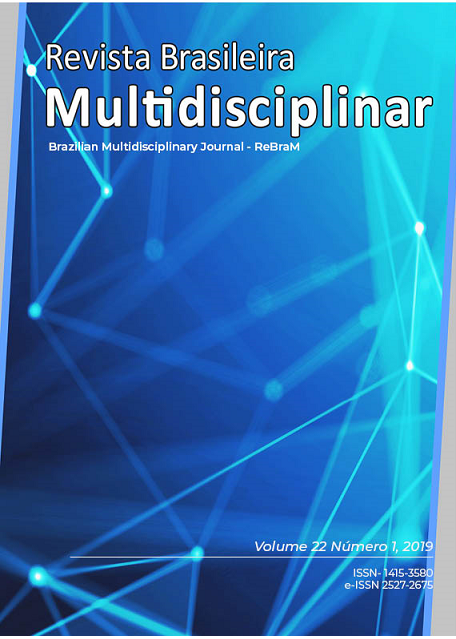The importance of psychoterapeutic work in overweight individuals who have binge eating disorder (BED)
Main Article Content
Abstract
The main objective of this study was to analyze, through a review of the pertinent literature, the necessity and importance of the psychotherapeutic work in overweight individuals who have Binge Eating Disorder, considering the difficulty of these people in the engagement in processes of weight loss, and maintenance. The proposed theme is extremely relevant, given the increase in overweight and obesity in Brazil and worldwide. We sought to verify how the psychologist's work can assist the subject in changing eating habits and behaviors and lso to evaluate the evidence on the effectiveness of psychotherapeutic follow-up in the weight loss process of these subjects. It is a bibliographical research, through a review of relevant literature on the subject, in periodicals, theses, articles, books and electronic libraries, published in the last 10 years. The databases used for the bibliographic survey are SCIELO and LILACS, as well as books that refer to the proposed theme. After surveying the existing works in these bases from the key words, those that did not fit within the parameters stipulated and defined in the project were disregarded. From the bibliographical survey, it was found that it is quite common that the Binge Eating Disorder be found in overweight individuals. It was possible to identify that, compared to other psychotherapeutic approaches, Cognitive Behavioral Therapy is the one that has more studies related to the individuals with Binge Eating Disorder. Regardless of the modality of psychotherapy, is a consensus the importance of the work of the psychologist in the treatment of these subjects, which will preferably integrate a multidisciplinary team.
Downloads
Article Details
• The author (s) warrant that the contribution is original and unpublished and that it is not in the process of being evaluated in other journal (s);
• The journal is not responsible for the opinions, ideas and concepts issued in the texts, as they are the sole responsibility of the author (s);
• Publishers have the right to make textual adjustments and to adapt the article to the rules of publication.
Authors retain the copyright and grant the journal the right of first publication, with the work simultaneously licensed under the Creative Commons Attribution License, which allows the sharing of work with acknowledgment of authorship and initial publication in this journal.
Authors are authorized to take additional contracts separately, for non-exclusive distribution of the version of the work published in this journal (eg publish in institutional repository or as book chapter), with acknowledgment of authorship and initial publication in this journal.
Authors are allowed and encouraged to publish and distribute their work online (eg in institutional repositories or on their personal page) at any point before or during the editorial process, as this can generate productive changes as well as increase the impact and citation of the published work (See The Effect of Free Access) at http://opcit.eprints.org/oacitation-biblio.html





